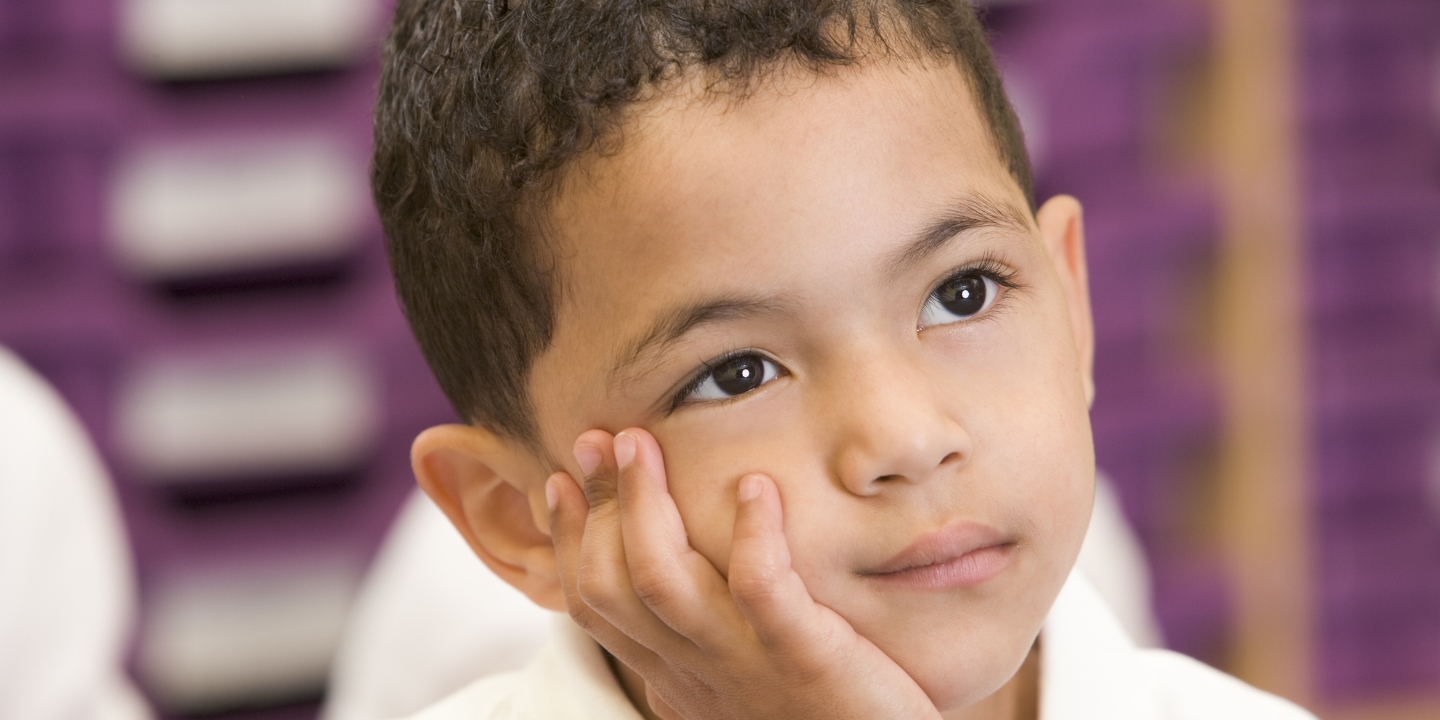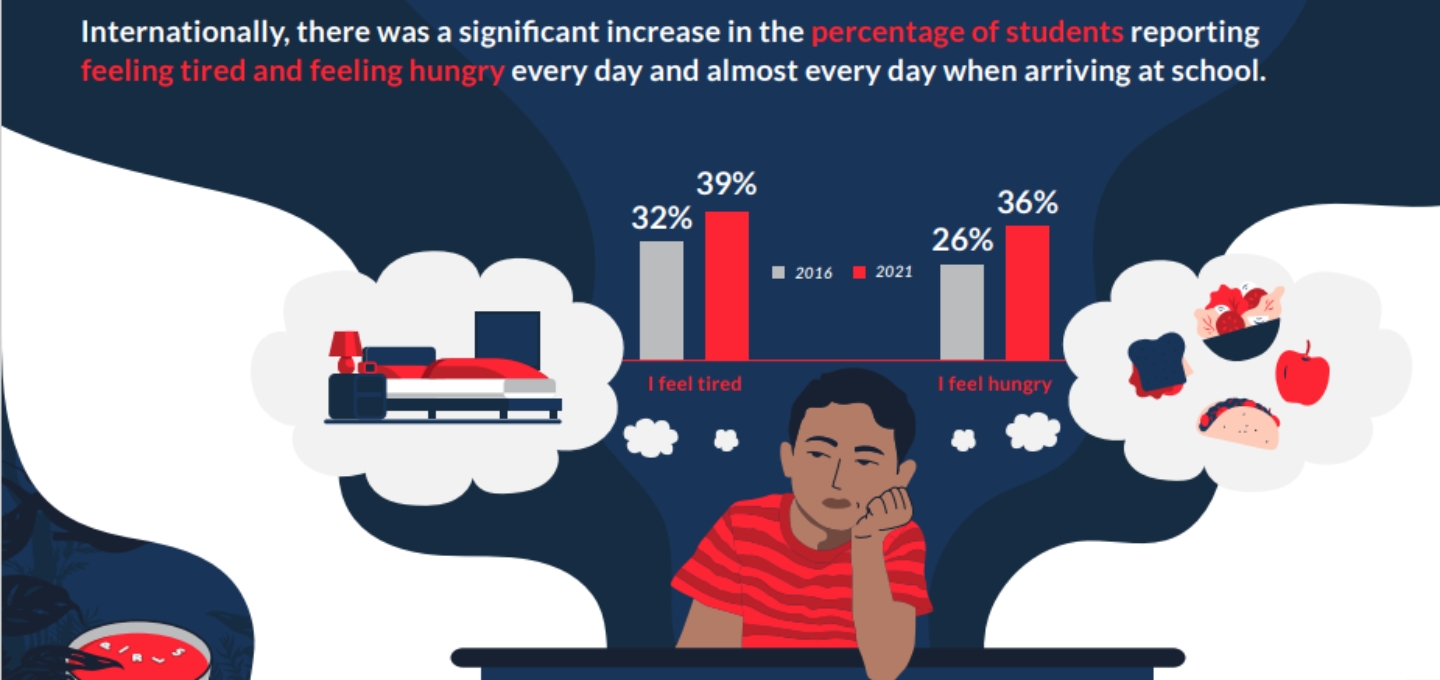
Reading harder for bullied, tired and hungry students
ACER news 24 Jan 2024 6 minute readAn international survey has found 37% of year 4 students in Australia who participated were experiencing multiple challenges in their school life that affected their reading performance.
The combination of challenges encompassed a limited sense of belonging, arriving at school tired and hungry almost every day, experiencing bullying about once a month and being absent from class about once every 2 months. The proportion of Australian students reporting these negative experiences was greater than the average across the other countries that participated in the study (25%).
The latest report in the Progress in International Reading Literacy Study (PIRLS) Insight series – Aspects of Student Well-Being and Reading Achievement in PIRLS 2021 – was released this month by the IEA.
The Insight report analysed data across the 57 countries and 400,000 students who took part in PIRLS 2021, grouping students according to their experiences of belonging, bullying, tiredness, hunger and absences.
Researchers found that those students who struggled to feel connected with their school and experienced frequent bullying had lower levels of reading performance than those with a strong sense of belonging. Higher average achievement was associated with lower levels of bullying and absenteeism, and higher levels of school belonging.
Across 4 wellbeing groups, the Insight report found that, internationally, the largest proportion of students (33%) was in group 2 – displaying a high sense of school belonging, never or ‘almost never’ being bullied, sometimes arriving at school tired, sometimes hungry, and never absent, or ‘almost never’ absent.

Data reflects the average across countries in PIRLS 2016 and 2021. Image: IEA
In Australia, 44% of students were in group 2. They scored on average 556 points – 16 points higher than the overall Australian average score of 540.
The second largest proportion of students in Australia (37%) fell into group 3 – being tired and hungry almost every day, experiencing bullying once a month, being absent from class once every 2 months, and having a limited connection to school.
Students in this group scored on average 519 points – 21 points lower than the Australian average score and 37 points lower than students in group 2 (the group experiencing none, or substantially fewer, of the negative circumstances).
Australia’s proportion of category 3 students is like that in several other countries, including Singapore, the Czech Republic, England and Slovenia.
The Australian Council for Educational Research (ACER) conducted the 2021 PIRLS assessment in Australia, using the responses of a nationally representative sample of 5,487 year 4 students to inform its report of Australia’s performance, released last May.
PIRLS National Project Manager for Australia, Senior Research Fellow Kylie Hillman, described the proportion of students who reported multiple challenges impacting on their wellbeing as ‘confronting’.
‘Thirty-seven per cent is quite confronting and highlights the challenges that teachers in Australian schools may be facing while ensuring that their students are supported in their learning,’ she said.
Limitations on teaching
To assess how ready students were to learn when they arrived at school, teachers were asked in the Australian assessment to indicate the extent to which their teaching was limited by certain factors. These included students’ hunger, lack of sleep, absence from class and issues such as emotional impairment.
ACER researchers found that close to two thirds of students were in classrooms that faced some limitations to teaching. On average, students in classrooms with very little limitation to teaching scored 25 points higher than those who faced some limitations, and 57 points higher than students whose teachers reported significant limitations.
In breaking down student experiences at school, the Australian report noted that 54% of students had a high sense of school belonging, while only 8% had little sense of belonging.
A higher sense of school belonging was associated with significantly higher reading performance; students with a high sense of belonging scored an average of 549 points, significantly higher than those with some sense of belonging (537 points) and those with little sense of belonging (508 points).
The analysis found 35% of Australian students reported being bullied monthly, and 13% weekly. On average, students who were bullied ‘about weekly’ scored lower (508 points) than students who were almost never bullied (553 points).
Internationally, the Insight report found ‘a noteworthy’ 68-point average achievement disparity between students who were bullied ‘never or almost never’ and those who were subjected to bullying ‘almost weekly’.
Why PIRLS is important
PIRLS measures the literacy levels of primary students at a critical time when they are expected to be moving from learning to read to reading to learn.
The 2021 assessment found that about 80% of Australian students have ‘more than elementary skills’ in reading comprehension. The previous test was in 2016 and the next is expected in 2026, with a deeper investigation of wellbeing foreshadowed.
‘Including aspects of students’ emotional, social and psychological experiences will enable … a more comprehensive narrative of their wellbeing that acknowledges the construct as an intricate fusion of academic achievement, emotional resilience and a nurturing educational environment,’ the Insight report says.
Read the full reports
Aspects of Student Well-being and Reading Achievement in PIRLS 2021